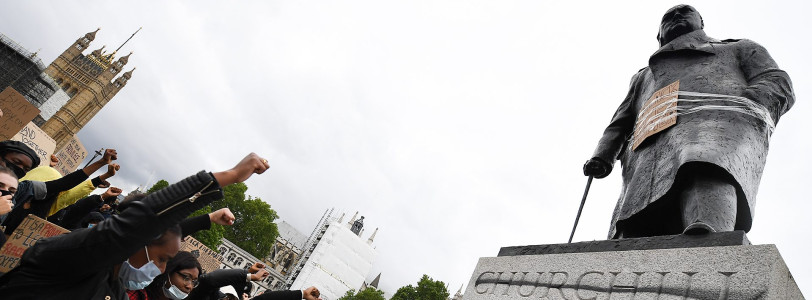In the modern world, political correctness, also commonly known as being “woke” or “cancel culture” has had a strong presence in Western society. Political correctness has gone a long way in improving rights and views towards minority groups such as LBGT+ and ethnic minorities. Yet, despite progressing society to be more inclusive, many hold the view that political correctness is regulating the arts, blocking and criticizing topics or ideas going against their agenda.
Political correctness, which I will refer to as PC, can be defined as “carefully avoiding forms of expression or action that are perceived to exclude, marginalize, or insult groups of people who are socially disadvantaged or discriminated against”, which is closely tied to “woke” meaning “aware of racial prejudice and discrimination”. Woke is modern slang that gained traction since the late 20th century, being used by the political right to label Liberal or Leftist ideas such as Black Lives Matter, feminism and LGBT+ movements.
Woke is a negative word, it’s a label. And it is always progressive ideas that are “woke”, for example Roald Dahl rewriting children's books to remove offensive language. Augustus Gloop is now ‘enormous’ instead of ‘fat’, Mrs Twit no longer ‘ugly’ and Oompa Loompas are gender neutral.
One feature of political correctness regulating the arts is through cancel culture. Cancel culture is where individuals and groups are boycotted for views or opinions seen as offensive, controversial and inappropriate. This is seen as PC policing and has led to some artists being censored, having their work removed or being pressured to apologize for their art. For example, JK Rowling writing a book with the pseudonym Robert Galbraith, which happens to be the name of the man who invented conversion therapy, a treatment to change a person's sexual orientation or suppress their gender identity. Rowling was thus called transphobic, and was “cancelled” as many of her readers boycotted her books, which is a form of art.
On the other hand, cancel culture has brought misconduct of artists to light, for example R Kelly who was found guilty at a Chicago federal trial of sexually abusing his 14-year-old goddaughter on video in September 2022. Other music artists such as Lady Gaga have taken down their collaborations with him as well as apologizing on social media. If not for the #MuteRKelly campaign, he may have gotten away with these crimes, thus cancel culture can have positive implications.
Another feature of political correctness regulating the arts is vandalism, specifically through the removal of statues and monuments. This debate was highly controversial on the removal of statues, for example the Edward Colston statue in Bristol or Christopher Columbus at the Minnesota State Capitol, which represented individuals associated with colonization, slavery or racism. Their removal is an act of removing politically incorrect symbols from public spaces, illegally. This classifies as vandalism by definition, and in London authorities had to border up a Churchill statue to stop it being defaced.
However, many statues and monuments are socially unacceptable, regardless of historical importance. Some historically insignificant monuments, for example Guy Gibson’s dog headstone in RAF Scampton, for the use of a racial slur. Many monuments were torn down in the period of the George Floyd protests, and you can see a list of monuments on Wikipedia, with over 400 monuments listed.
Political correctness regulates arts depicting gender and sexual orientation, usually due to discrimination. Within recent years there have been calls for greater representation and inclusivity of diverse gender identities and sexual orientations in art. Some pieces are usually creating a message in protest to discrimination or to add shock factor, for example Cecilia Vicuña 1972, depicting Karl Marx standing in front of two women kissing.
Increase in diversity have increased in other forms of art too, specifically entertainment media such as films and shows. A famous example of this was in Star Wars: The Rise of Skywalker where two minor characters of the same gender can be seen kissing in the background, which had mixed receptions of people critising and praising Disney,
However, some people have argued that political correctness culture has led to the exclusion of other perspectives, such as those who do not identify with progressive ideas. Right wing press such as Fox News and Deadline argued that white actors were now at a disadvantage compared to ethnic minority peers, calling it ‘race casting’.
Alternatively, I see little downside to increased representation, as it has given many people, specifically those of different forms of sexual orientation to shine in an industry previously very critical of homosexuality.
Finally, political correctness culture regulates the arts through increased awareness of cultural appropriation. Now, the growing sensitivity to the appropriation of cultural elements in society, including arts, is heightened when those outside the culture being appropriated. This can be seen especially with musical artists such as Iggy Azalea, Justin Bieber, Katy Perry, Miley Cyrus and Gwen Stefani. Katy Perry in particular has been called out for cultural appropriation, which has led to outrage on social media, however she has addressed her mistakes commenting "I will never understand some of those things because of who I am. But I can educate myself, and that's what I'm trying to do along the way.", in response to her 2013 AMAs performance which appropriated Japanese culture where she dressed as a geisha and her appropriation of black hair styles in music video “This Is How We Do”.
While cultural appropriation by these music artists certainly do appropriate cultures and possibly offending some, many critics argue that growing sensitivity leads to further division. For example, in a 2006 interview featuring Morgan Freeman where he commented on need for Black History Month: “How do you stop racism? Stop talking about it. I’m going to stop calling you a white man and I’m going to ask you to stop calling me a black man.”.
Ultimately, the concept of political correctness is a delicate topic, and it is important to strike a balance between promoting inclusivity and diversity while allowing for freedom of speech and expression of opinion. Furthermore, supporters and critics of PC need to agree on the limit of freedom of speech and genuine hate speech, which many cite Kanye West going beyond that line with antisemitic comments resulting in companies such as Adidas terminating its partnership with him.
Thus, it is important to engage in debate over what constitutes appropriation of marginalized groups compared to appreciation of cultural practices, and encourage all groups, minority or majority to be represented in arts, rather than argue using an informal fallacy.
In conclusion, political correctness is a complex and intricate issue facing the arts that has both positive and negative aspects. PC has been successful in promoting inclusivity and diversity within many forms of art, whether representation behind the scenes or in the art itself. However, it has also been criticised for being overly restrictive and stifling free speech, which is what art has always been about. It is imperative to find a balance between promoting inclusivity while also allowing for freedom of speech and expression for alternate views.








Please do give feedback on this article, and advice or critical evaluation will help improve my writing ability!